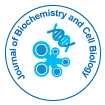当社グループは 3,000 以上の世界的なカンファレンスシリーズ 米国、ヨーロッパ、世界中で毎年イベントが開催されます。 1,000 のより科学的な学会からの支援を受けたアジア および 700 以上の オープン アクセスを発行ジャーナルには 50,000 人以上の著名人が掲載されており、科学者が編集委員として名高い
。オープンアクセスジャーナルはより多くの読者と引用を獲得
700 ジャーナル と 15,000,000 人の読者 各ジャーナルは 25,000 人以上の読者を獲得
抽象的な
Biochemical characterization of gamma-glutamyl transferase from Bacillus altitudinus: A potential enzyme for L-theanine production
Hemant Sharma
L-theanine (L-Th), a non-protein amino acid present in tea is a valuable nutraceutical and food additive, amongst the top best seller for insomnia and generally regarded as safe (GRAS) ingredient by Food and Drug Administration (FDA). In vitro, in vivo as well as clinical studies have shown its positive effect in regulating various neurological disorders. L-Th enhances umami taste in tea and other foods but its use is limited due to its inadequate production in tea plant (7-21 mg/g dry weight basis). Amongst the different reported production and extraction approaches, microbial transformation with advantages like highest possible efficiency, least waste formation and lowest environmental impact have been tried to meet its demand. More than 300 isolates from tea rhizosphere were screened for L-theanine synthesis using glutamine (20 mmol L-1) and ethylamine (50 mmol L-1) as donor and acceptor, respectively. Highest L-theanine producing strain was identified as Bacillus altitudinus
through physiological and biochemical properties with 16 S rRNA sequence analysis and was further taken for optimization studies. The production of extracellular enzyme γ-Glutamyl transferase (GGT) was optimized using one-variable-at-a-time (OVAT) and statistical approaches i.e., Plakett-Burman and Central Composite Design. Maximum GGT production of 442 U ml-1 was obtained at 28 ˚C, 200 rpm and pH 7 with glucose (0.1%) and yeast extract (0.3%) as carbon and nitrogen sources. GGT was purified to homogeneity from culture of Bacillus altitudinus in three steps and characterized. A molecular mass of 62 kDa was determined by gel filtration chromatography. The purified GGT has optimum pH and temperature 8.0 at 37 ˚C, stable up to pH 6-10 and temperature < 50 ˚C. The enzyme exhibited the highest affinity for Ca2+ ions. GGT produced from Bacillus altitudinus represents an attractive candidate for large scale L-Th production.

 English
English  Spanish
Spanish  Chinese
Chinese  Russian
Russian  German
German  French
French  Portuguese
Portuguese  Hindi
Hindi